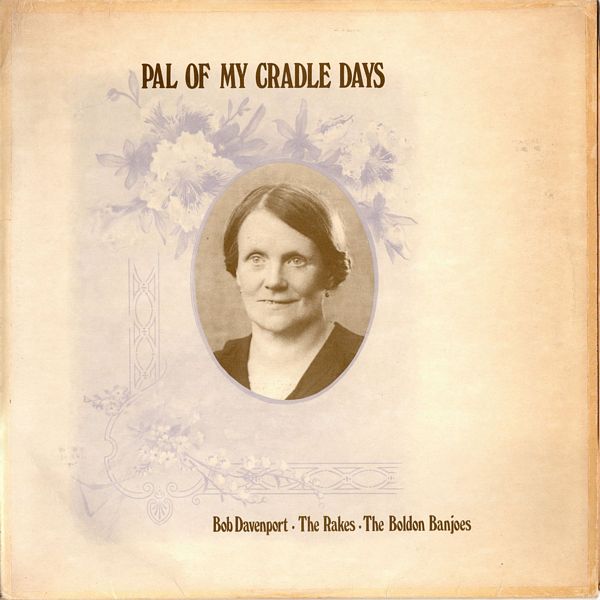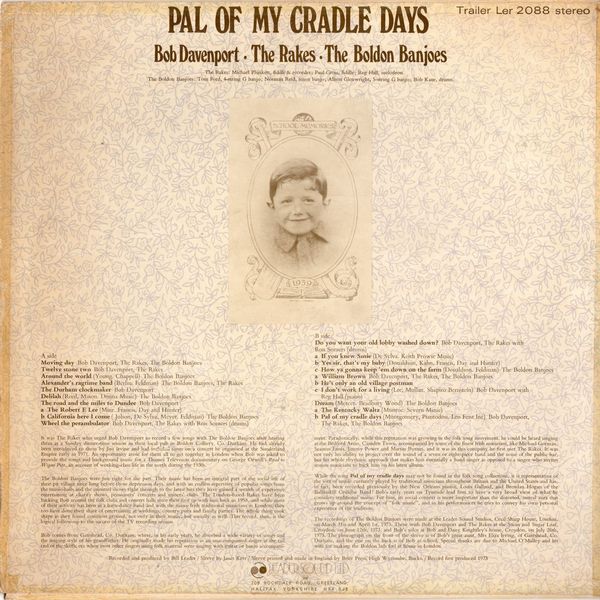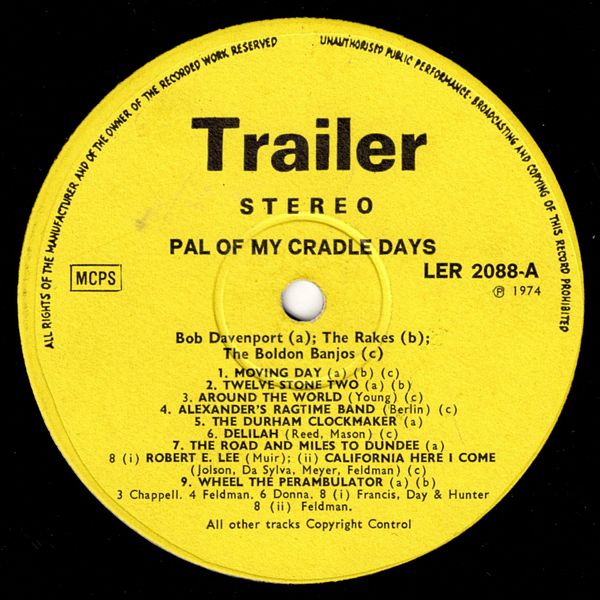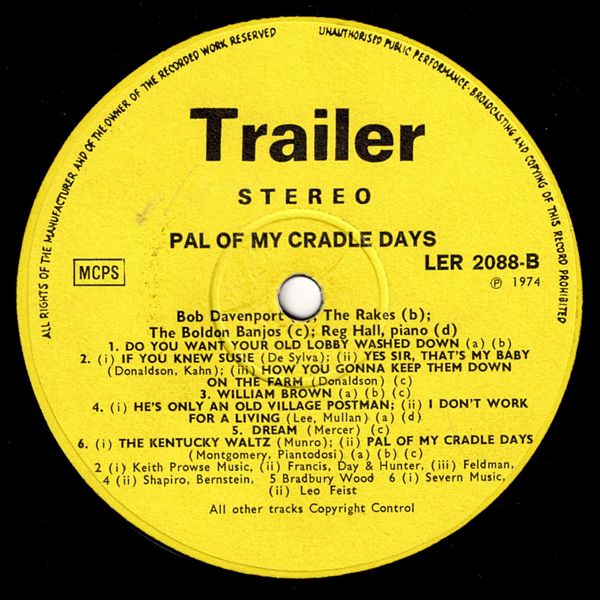
 |


 |
Sleeve Notes
It was The Rakes who urged Bob Davenport to record a few songs with The Boldon Banjoes after hearing them at a Sunday dinner-time session in their local pub in Boldon Colliery, Co. Durham. He had already been introduced to them by Jim Irvine and had included them on a concert he organised at the Sunderland Empire early in 1971. An opportunity arose for them all to get together in London when Bob was asked to provide the songs and background music for a Thames Television documentary on George Orwell's Road to Wigan Pier, an account of working-class life in the north during the 1930s.
The Boldon Banjoes were just right for the part. Their music has been an integral part of the social life of their pit village since long before those depression days, and with an endless repertoire of popular songs from the music-halls and the minstrel shows right through to the latest hits they have gained a wealth of experience entertaining at charity shows, pensioners' concerts and miners' clubs. The London-based Rakes have been backing Bob around the folk clubs and concert halls since their first ep with him back in 1938, and while most of their activity has been as a barn-dance band and with the many Irish traditional musicians in London, they too have done their share of entertaining at weddings, country pubs and family parties. The whole thing took shape as they found common ground, not only in their music, but socially as well. This record, then, is the logical follow-up to the success of the TV recording session.
Bob comes from Gateshead, Co. Durham, where, in his early years, he absorbed a wide variety of songs and the singing style of his grandfather. He originally made his reputation as an unaccompanied singer at the tail end of the skiffle era when most other Singers using folk material were singing with guitar or banjo accompaniment. Paradoxically, while this reputation was growing in the folk song movement, he could be heard singing at the Bedford Arms, Camden Town, accompanied by some of the finest Irish musicians, like Michael Gorman, Seamus Ennis, Jimmy Power and Martin Byrnes, and it was in this company he first met The Rakes. It was not only his ability to project over the sound of a seven or eight-piece band and the noise of the public bar, but his whole rhythmic approach that makes him essentially a band singer as opposed to a singer who invites session musicians to back him on his latest album.
While the song Pal of my cradle days may not be found in the folk song collections, it is representative of the sort of music currently played by traditional musicians throughout Britain and the United States and has, in fact, been recorded previously by the New Orleans pianist, Louis Gallaud, and Brendan Hogan of the Ballinakill Ceilidhe Band! Bob's early years on Tyneside lead him to have a very broad view of what he considers traditional music. For hint, its social context is more important than the distorted, unreal aura that grows up around the concept of "folk music", and in his performances he tries to convey his own personal experience of the tradition.
The recordings of The Boldon Banjoes were made at the Leader Sound Studios, Cecil Sharp House, London, on March 31st and April 1st, 1973. Those with Bob Davenport and The Rakes at the Swan and Sugar Loaf, Croydon, on June 12th, 1973, and Bob's solos at Bob and Daisy Keightley's house, Croydon, on July 26th, 1973. The photograph on the front of the sleeve is of Bob's great aunt, Mrs Eliza Irving, of Gateshead, Co. Durham, and the one on the back is of Bob at school. Special thanks are due to Michael O'Malley and his wife for making the Boldon lads feel at home in London.